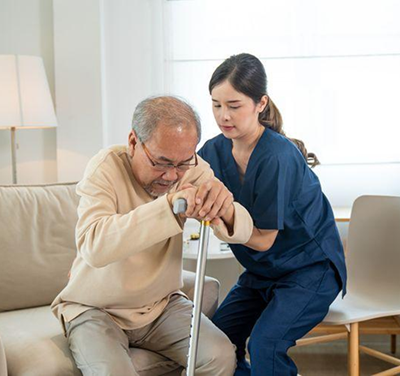As loved ones age, families often face one of the most difficult decisions: where and how their elderly family members will receive the care they need. While nursing homes have long been the traditional route, many families are now turning to in-home care as a more personalized and flexible alternative. Choosing home care over a nursing home offers numerous advantages that support seniors’ well-being, independence, and overall quality of life.
Here are seven compelling benefits of selecting home care for your loved ones.
1. Comfort and Familiarity of Home
There’s no substitute for home. Seniors who remain in their own homes often experience reduced anxiety and greater emotional well-being simply because they are surrounded by the people, belongings, and environment they’ve known for years. Familiar surroundings can be especially helpful for individuals living with Alzheimer’s or other forms of dementia, as maintaining routine and location familiarity can help ease confusion and agitation. Being able to sleep in their own bed, cook in their own kitchen, and sit on their favorite couch can make a world of difference in a senior’s emotional health.
2. Personalized One-on-One Care
Unlike nursing homes, where care is delivered to many residents at once, home care offers truly individualized attention. A private caregiver or nurse tailors care to the specific needs, preferences, and routines of the client. Whether it’s assistance with medication, preparing specific meals, or support with mobility, care is provided with the undivided focus of the caregiver. This one-on-one dynamic allows for a deeper relationship between the caregiver and the client, fostering trust and companionship that simply isn’t feasible in most institutional settings.
3. Greater Independence and Control
Seniors who remain at home retain a greater sense of autonomy. They can wake up and go to bed on their own schedule, eat meals when and how they like, and engage in personal routines that bring comfort and meaning. This freedom of choice—something that’s often limited in nursing homes—can have a profound impact on a person’s self-esteem and outlook. Instead of being told when to bathe or what to eat, seniors receiving care at home participate in decisions about their day-to-day lives, which can lead to greater satisfaction and emotional health.
4. Reduced Risk of Infection
Living in a communal environment like a nursing home increases exposure to infectious diseases, especially during flu season or viral outbreaks. Seniors often have compromised immune systems, making them particularly vulnerable. Home care significantly reduces this risk by limiting exposure to others. In the safety of their own home, clients interact with a limited number of caregivers, minimizing the chances of illness transmission. This benefit became especially apparent during the COVID-19 pandemic, when many families chose home care to avoid the elevated risks found in congregate settings.
5. Flexible and Cost-Efficient Options
While nursing homes offer 24/7 care, that level of service may not be necessary for every senior. Home care allows for flexible scheduling based on need—whether it’s a few hours a day, overnight care, or live-in support. This customization can make home health care more cost-effective for many families. Instead of paying for services that may not be used, families only pay for the care that’s actually needed. Additionally, some long-term care insurance policies and public programs may cover part of the cost, easing the financial burden even further.
6. Stronger Family Involvement
When care takes place at home, family members can be more involved in their loved one’s care plan and daily life. This can range from coordinating caregiver schedules to simply spending more quality time together. Unlike nursing homes with strict visiting hours and structured routines, home care allows families to engage more naturally and frequently. The ability to stay connected and contribute to the care process can be deeply reassuring for both the senior and their loved ones.
7. Maintaining Dignity and Privacy
One of the most overlooked aspects of elder care is dignity. In nursing homes, shared rooms, scheduled group activities, and institutional routines can erode a person’s sense of self. In contrast, home care supports dignity and privacy by allowing seniors to remain in control of their personal space and schedule. Whether it’s choosing what to wear, when to bathe, or who provides care, these decisions reinforce self-respect and human dignity. This sense of agency is crucial in maintaining mental and emotional health during the aging process.
Home care offers a compassionate, customizable, and empowering alternative to institutional living for seniors. While nursing homes can provide comprehensive medical care, they often lack the personal touch and comfort of in-home services. With benefits ranging from improved emotional well-being to greater flexibility and safety, it’s no wonder more families are exploring home care as their preferred choice.
If you’re considering options for an aging loved one, take the time to explore the full scope of services available through home health care. The right support—delivered at home—can make all the difference.






